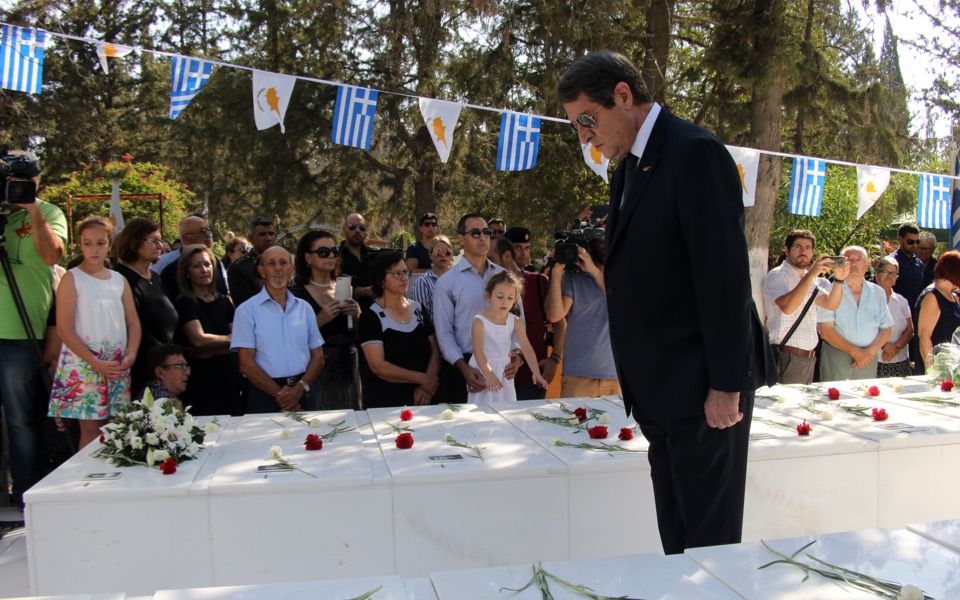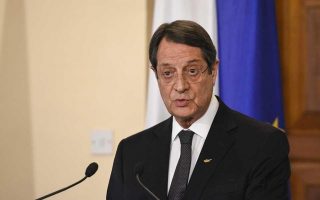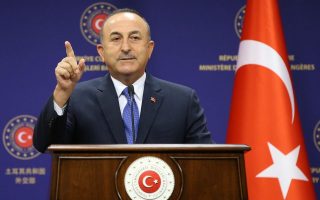Cyprus leader blames Turkey for talks collapse, says drilling to continue

In a wide-ranging interview with Sunday’s Kathimerini, Cypriot President Nicos Anastasiades blamed Turkey for the collapse of the latest United Nations-mediated effort to reunify Cyprus, said Nicosia would not change its plans to drill for hydrocarbons off the island’s coast and appealed for calm in the region.
Noting that the collapse of peace talks had provoked both “disappointment” and “concern” about Turkey’s intentions, Anastasiades said the priority now was to “remain calm and avoid stoking tensions.”
“This obsessive dependence on Turkey is the biggest concern to the Greek Cypriots,” he said, noting that Ankara had not been ready for a solution.
Nicosia’s proposals during the negotiations at the Swiss resort of Crans-Montana, he said, had been aimed towards the creation of a state that would be independent of the influence of Turkey and would abolish all foreign guarantees, he said.
The Cypriot leader also criticized the UN’s special envoy for Cyprus, Espen Barth Eide, for basically being deluded and bringing UN chief Antonio Guterres into the talks without adequate preparation.
“I think he was acting in good faith, but he had the failing of believing that what he wanted to happen was happening,” Anastasiades said. “He had the impression that everything was almost solved,” he added. “That’s the sense he gave out and I warned him about it.”
Anastasiades did not rule out the prospects for a new attempt at tackling the Cyprus problem, but indicated that it would not be any time soon. “There has to be a period of introspection and rational assessment of the facts so we can decide which initiatives could form the basis for a new activation at the UN level,” he said.
As for drilling for hydrocarbons off Cyprus, which the French-Italian energy consortium of Total and Eni started in the middle of last week, Anastasiades indicated that the drilling would continue, despite Turkish objections.
“Our energy plans have not changed,” he said. “It is a right that is being exercised by the Republic of Cyprus which requires neither advertising nor provocation.”
Noting that Ankara’s disputing of the sovereignty of the Republic of Cyprus and of the country’s exclusive economic zone (EEZ) “are well known,” Anastasiades said Nicosia has taken “a series of preventive measures.”
“I don’t mean combative measures, but there are legal measures, international organizations and the Law of the Sea, which determine the rights of each state,” he said.
Asked about current talks between Turkey and Israel regarding the construction of a pipeline that would allow the latter to supply the former with gas, Anastasiades said he had raised the issue with the Israeli government as the envisaged pipeline would pass through Cyprus’s EEZ.
“We don’t have the right to veto but we have a series of other rights, either relating to the environment or to further plans, which stipulate the permission of Cyprus,” he said.
Turkey recognizing the Republic of Cyprus would be a step towards a trilateral agreement, he said.





